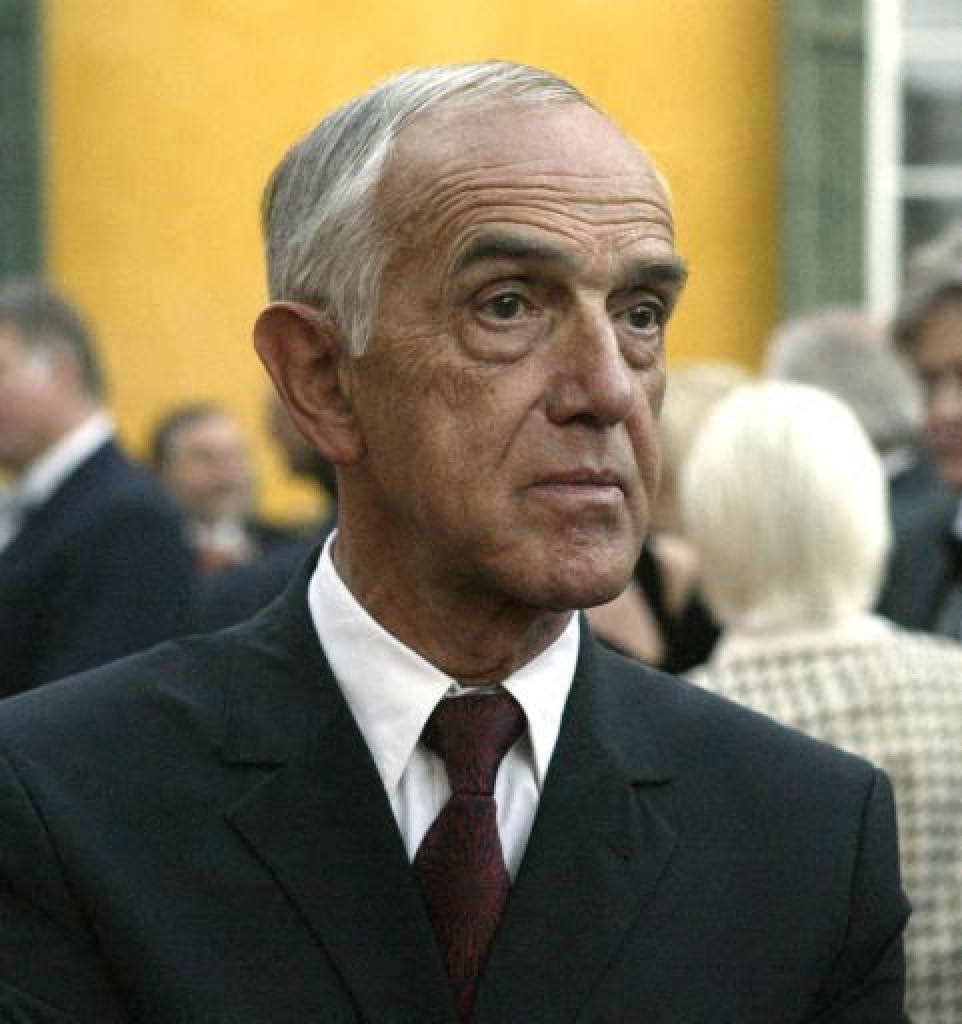
Gaston Glock, inventor of cult gun, dead at 94
- Reclusive engineer and tycoon developed one of the world’s bestselling handguns
- Glock handguns are used by police and military forces, as well as private customers
Austrian engineer Gaston Glock, whose eponymous Glock pistol achieved global cult status, died on Wednesday, according to the company.
“In Memoriam Gaston Glock 07/19/1929 – 12/27/2023,” read the company’s site, showing a photo of Glock – standing arms crossed in a dark suit with a maroon tie – against a black background.
Though the notoriously private Glock may not have been world famous, his invention, wielded by police and outlaws alike, certainly made its mark worldwide, matched by few other weapons.
Media-shy Glock hit the headlines several times – notably in 1999 when he survived a murder attempt and years later during his acrimonious divorce from his first wife Helga.

He was not a stranger to the society circuit, however, hosting glamorous parties with his second wife, Kathrin, attended by celebrities and politicians.
Born in 1929, Glock studied mechanical engineering at a college in Vienna.
US martial arts legend Chuck Norris under fire for endorsing gun company
In 1963 he founded his own consumer goods firm in the town of Deutsch-Wagram, 20km (12 miles) outside Vienna.
By the early 1980s Glock had branched into military supplies and decided to answer a call for tenders put out by the Austrian army, which wanted to update its pistols.
He devised the Glock, a firearm that revolutionised the field: made largely of non-metal components, lighter, easier to take apart, more reliable, able to carry more bullets than other brands.
Once the contract with the Austrian army was finalised, the company’s fortunes soared when it entered the American and then the global market.
Between 2014 and 2017 alone, the company’s worth is estimated to have risen by almost 50 per cent and in 2021, Forbes estimated the fortune of Gaston Glock and his family at US$1.1 billion.
American pop culture in particular helped Glock attain its iconic status.
Soon the easily assembled weapon became a global hit. “Get yourself a Glock and lose that nickel-plated sissy pistol,” Tommy Lee Jones said in the 1998 movie US Marshals.
Many US police officers used them and US rappers worked them into their rhymes, among them Snoop Dogg’s “Protocol” and Wu-Tang Clan’s “Da Glock”.
US soldiers found toppled Iraqi President Saddam Hussein hiding with a Glock in a hole in the ground in 2003. They later presented that weapon to US President George W. Bush, according to The New York Times.
But along with the huge wealth came a darker side to the Glock story.
In 1999 a feud within the business almost cost him his life after Charles Ewert, who managed Glock’s affairs in Luxembourg, tried to have him killed.
‘I was an idiot’: smoker writes own obituary before dying, it goes viral
Ewert – also known as Panama Charly – was sentenced to 20 years in jail for having organised the attempted murder in a Luxembourg car park, in which Glock was attacked with a hammer and sustained serious head injuries.
Glock’s personal life also attracted press attention when after more than 50 years of marriage, in 2011 he and his wife Helga went through a bitter divorce.
In 2014, his then ex-wife unsuccessfully attempted to sue Glock for US$500 million, accusing him of racketeering and of diverting funds from the company, as well as treating his family “with the senseless and self-destructive rage of Shakespeare’s King Lear”.
The lawsuit made a host of claims about how Glock had spent the money, including hiring strippers to represent the company at trade shows.
Following his second marriage, the couple turned their attention to investing in horse racing, opening a vast equestrian complex in southern Austria.
The Glock Horse Performance Centre played host both to races and red-carpet events graced by the likes of British singer Robbie Williams and supermodel Naomi Campbell, as well as Austrian government ministers.
Glock and his company were not reticent about using legal means to defend their reputation, but this wasn’t always successful.
In 2012 the company lost a long-running lawsuit for defamation against the human rights organisation Amnesty International, which had drawn attention to reports of a Glock weapon being used by rebels in Sudan.
Additional reporting by Reuters

.png?itok=arIb17P0)